
Session 1 Variation (5/20 10:00-)
Daniel MacArhur (Broad Inst., USA)
Daniel MacArthur is an Assistant Professor at Harvard Medical School and Massachusetts General Hospital and the Associate Director of Medical and Population Genetics at the Broad Institute of Harvard and MIT.
MacArthur’s research is focused on the use of genomic approaches to uncover the functional impact of human genetic variation. He coordinated the functional analysis of protein-coding genetic variants for the 1000 Genomes Project pilot studies, published in 2010, and subsequently led a working group investigating the impact of protein-coding loss-of-function variants in the human genome (MacArthur et al. Science 2012).
He currently coordinates the Exome Aggregation Consortium (ExAC), which has aggregated and jointly processed exome sequence data from over 92,000 individuals. He also leads the Genotyping Working Group of the Genotype-Tissue Expression (GTEx) Project, and two consortia focused on the genomic diagnosis of rare neuromuscular diseases. He serves on the Program Committee for the American Society of Human Genetics, and in 2012 co-chaired the NHGRI Working Group on Implicating Sequence Variants in Human Disease.
MacArthur received his BMedSc and PhD from the University of Sydney, Australia, and completed postdoctoral training at the Wellcome Trust Sanger Institute in Cambridge, UK before beginning his current position in 2012.
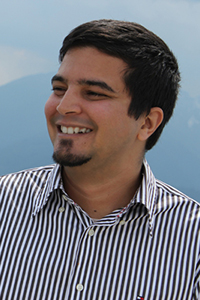
Session 1 Variation (5/20 10:00-)
Halit Ongen (The Univ. of Geneva)
After attaining my D.Phil from University of Oxford on genetics of cardiovascular disease in Prof. Hugh Watkins' lab, and woking there as a post doc, I moved to Manolis' lab. Currently I am working on transcriptomics of colorectal cancer as part of the the SYSCOL project.
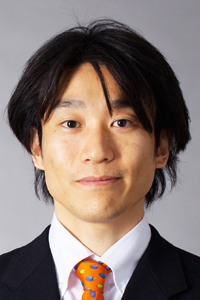
Session 1 Variation (5/20 10:00-)
Masao Nagasaki (Tohoku University, TohokuMMD)
Masao Nagasaki is a Professor at Tohoku Medical Megabank Organization (ToMMo) Tohoku University. As the Group Leader of in silico analysis and a Deputy Department Chair of Department of Integrative Genomics, he is processing the thousands Japanese whole-genome sequenced data from participants of prospective cohort project in ToMMo and constructing the Japanese whole-genome reference panel. The part of the reference is publicly available from the web site (http://ijgvd.megabank.tohoku.ac.jp/). His interest is to develop bioinformatics algorithms and tools for the analysis of data from high performance sequencer on the supercomputer environment. Before moving to Tohoku University, he was related to the International Cancer Genome Consortium’s (ICGC, http://www.icgc.org/) liver cancer project at Human Genome Center, the Institute of Medical Science, the University of Tokyo as a collaboration project with Riken and the National Cancer Center in Japan.
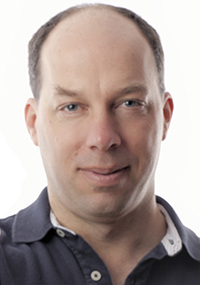
Keynote Session (5/20 16:00-)
Stephen Quake (Stanford Univ., USA)
Stephen Quake studied physics (BS 1991) and mathematics (MS 1991) at Stanford University,
after which he earned a doctorate in theoretical physics from Oxford University (1994) as a
Marshall Scholar. He then returned to Stanford University, where he spent two years as a postdoc
in Steven Chu's group.
Quake joined the faculty of the California Institute of Technology in 1996, where he rose
through the ranks and was ultimately appointed the Thomas and Doris Everhart Professor of
Applied Physics and Physics. At Caltech, Quake received “Career” and “First” awards from the
National Science Foundation and National Institutes of Health and was named a Packard Fellow.
These awards supported a research program that began with single molecule biophysics and soon
expanded to include the inventions of single molecule sequencing and microfluidic large scale
integration, and their applications to biology and human health. He moved back to Stanford
University in 2005 to help launch a new department in Bioengineering, where he is now the Lee
Otterson Professor and an investigator of the Howard Hughes Medical Institute.
Quake’s contributions to the development of new biotechnology at the interface between physics
and biology have been widely recognized. Honors include the Human Frontiers of Science
Nakasone Prize, the MIT-Lemelson Prize, the Raymond and Beverly Sackler International Prize
in Biophysics, the American Society for Microbiology Promega Biotechnology Research Award,
the Royal Society of Chemistry Publishing Pioneer of Miniaturization Award, and the NIH
Director’s Pioneer Award. He is an elected fellow of the American Academy of Arts and
Sciences, the National Academy of Inventors, the National Academy of Sciences, the National
Academy of Engineering, the Institute of Medicine, the American Institute for Medical and
Biological Engineering and of the American Physical Society.
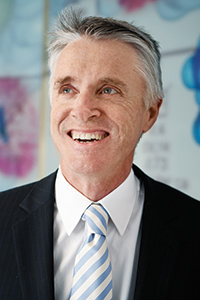
Session 2 Cancer Genomics (5/20 17:00-)
David Bowtell, PhD (Peter MacCallum Cancer Centre)
Professor Bowtell is Head of the Cancer Genomics and Genetics Program at the Peter MacCallum Cancer Centre (Peter Mac). He holds a joint appointment at Imperial College London and is a Visiting Professor at the Dana Farber Cancer Institute, Boston. He was Director of Research at Peter Mac, Australia’s oldest and largest cancer centre, for a decade from 2000.
Professor Bowtell has an extensive background human cancer genomics. He is Principal Investigator for the Australian Ovarian Cancer Study (AOCS), one of the largest population-based cohort studies of ovarian cancer in the world, involving over 3000 women. His work is part of the International Cancer Genome Consortium, an ambitious program to map the genomes of the 50 most common cancer types. Professor Bowtell’s research has focused on the classification of ovarian cancer, and mechanisms of primary and acquired drug resistance.
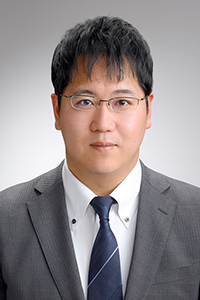
Session 2 Cancer Genomics (5/20 17:00-)
Shunpei Ishikawa (The University of Tokyo, Japan)
Shumpei Ishikawa, MD, PhD, is a Professor in the department of Genomic Pathology , Tokyo Medical & Dental
University. He graduated from Faculty of Medicine, the University of Tokyo in 2000, and received his PhD
degree in Pathology from the University of Tokyo in 2004.
His research focuses on cancer pathology&genomics and the genomic variation in human diseases. Through
international collaboration, he published the first draft map of human copy number variation(CNV) in 2006.
He is now working at cancer genome analysis and driver gene discovery, especially for gastric cancer. He is
also involved in metagenomics and immune-genomics area.
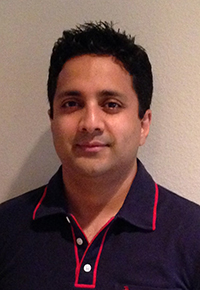
Session 3 Single Cell Genomics (5/21 9:30-)
Neeraj Salathia (Illumina, Inc. USA)
Neeraj Salathia is a Scientist at Illumina. At Illumina, Neeraj has been working on single cell projects to enable
the generation of high-throughput single cell RNA-seq data. As part of this effort, he has been coordinating
Illumina’s efforts as part of an NIH funded “Single Cell Analysis Platform” grant to elucidate the transcriptome
profiles of single nuclei from the human brain cortex. In parallel, Neeraj has been developing assays at
Illumina to enable cost-efficient and robust high-throughput single cell RNA-seq data generation.
Prior to this Neeraj trained as a post-doctoral researcher at Harvard University and then Novartis, working on
developing genomics technology assays.
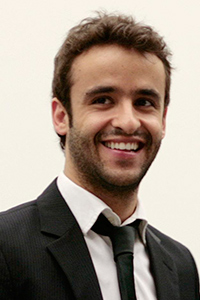
Session 3 Single Cell Genomics (5/21 9:30-)
Luis Saraiva (EMBL-EBI, UK)
Luis R. Saraiva completed a “Licenciatura” (BSc+MSc) in Biology at the Universidade de Evora and Instituto
Gulbenkian de Ciencia (Portugal). He then became a Fellow of the International Graduate School in Genetics
and Functional Genomics at the University of Cologne, Germany, where he received his PhD in Genetics
(summa cum laude) in 2008. He then worked as post-doctoral scholar in the lab of Dr. Linda Buck (Nobel
Laureate in Physiology and Medicine 2004) at the Fred Hutchinson Cancer Research Center in Seattle. There
he investigated which olfactory receptors recognize pheromones and other 'general odors', how these
environmental cues can modulate behavior and physiology, and how olfactory cues can be translated into
perception. Currently and since 2013, he is an EBI–Sanger Postdoctoral (ESPOD) Fellow at the labs of John
Marioni (EMBL-EBI) and Darren Logan (Wellcome Trust Sanger Institute), in Cambridge, UK. There he is
applying transcriptomic technologies to study how evolution shaped the size and function of gene repertoires
involved in olfaction. He is currently focusing in applying single-cell transcriptomics to study the molecular
identity and heterogeneity of different olfactory neuronal populations.
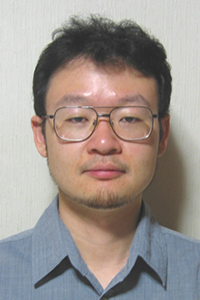
Session 3 Single Cell Genomics (5/21 9:30-)
Yuichi Hongo (Tokyo Institute of Tecnology, Japan)
Dr. Hongoh received his Ph.D. from Tokyo University, Japan, in 2000. After that, he stayed in Thailand for 4 years and studied the termite-gut ecosystem. He came back to Japan in 2004 and worked on genomics of uncultivable microorganisms at RIKEN. In 2009, he moved to Tokyo Institute of Technology as an associate professor and has been promoted to professor in 2014. He published many papers in the filed of molecular ecology, particularly, of termite-gut microbiota. He has established technique to obtain genome sequences from uncultivable microbial species and is trying to decipher the multi-layered symbiotic system organized by several thousand microbial species in the gut of termites.

Special DTC Sessions (5/21 13:00-)
Elizabeth Mansfield (OIR/CDRH/FDA, USA(DC))
Dr. Mansfield is the Deputy Office Director for Personalized Medicine in the Office of In Vitro Diagnostics and Radiological Health (OIR) in the Center for Devices and Radiological Health (CDRH). Dr. Mansfield has extensive experience in regulation and policy regarding in vitro diagnostic devices, and has led the development of a personalized medicine program in CDRH. Dr. Mansfield received her PhD from the Johns Hopkins University, and completed postdoctoral training at NCI and NIAMS. She was the Director of Regulatory Affairs at Affymetrix, Inc. from 2004-2006.
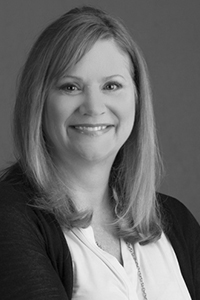
Special DTC Sessions (5/21 13:00-)
Kathy Hibbs (23andMe, Inc.)
Kathy Hibbs, Esq. joined 23andMe as Chief Legal and Regulatory Officer in 2014. Kathy brings more than 20 years of legal and management expertise in the clinical laboratory and medical device industries to 23andMe. Prior to joining 23andMe, Kathy served as senior vice president and general counsel, responsible for the legal, regulatory and business development functions at Genomic Health, Inc. Kathy has also held related posts at Monogram Biosciences Inc., and Varian Medical Systems, Inc.. Kathy is active in several industry groups including the American Clinical Laboratory Association (ACLA), the Coalition for 21st Century Medicine and the Personalized Medicine Coalition (PMC). Kathy holds a Juris Doctorate from the University of California, Hastings School of Law, and a Bachelors of Arts in Political Science, from the University of California, Riverside.
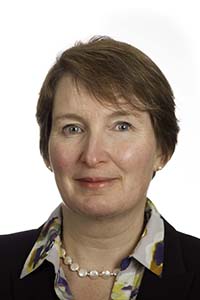
Special DTC Sessions (5/21 13:00-)
Alison Hall (PHGFoundation, UK)
As Programme Lead (Humanities) at the PHG Foundation, Alison is actively involved in policy analysis, evaluation and implementation. Professionally qualified as a lawyer and a nurse, with a master’s qualification in health care ethics, her work focuses on the analysis of ethical, legal and social issues (ELSI) in biomedical technologies. She has recently led a two year policy development project working with stakeholders on the ethical, legal and societal implications of implementing genomic sequencing into clinical practice (Hall A, Finnegan T, Alberg C, PHG Foundation (2014) Realising Genomics in Clinical Practice. ISBN 978-1-907198-15-1). She has co-authored PHG Foundation reports on ethical, legal and societal impacts of biotechnological advances including genomic stratification in cancer prevention and non-invasive prenatal diagnosis, and has over 20 peer-reviewed publications. Her work includes regulatory and legal policy analysis and briefings on the governance of human tissue, data protection and in vitro-diagnostic devices reform, and she has also contributed to relevant professional guidance including ‘Consent and Confidentiality in Clinical Genetic Practice’ published by the UK Joint Committee on Genomics in Medicine. She is currently on the Data Access Committee for the UK Understanding Society Project, on the ethics and policy committee of the British Society for Genetic Medicine, and is a lay member of an NHS research ethics committee. >
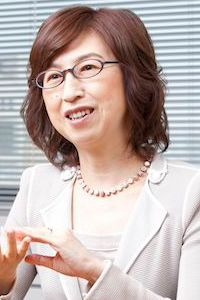
Special DTC Sessions (5/21 13:00-)
Tomoko Namba (DeNA Co., Ltd., Japan)
Tomoko Namba is one of the most successful entrepreneurs in Japan. In 1999, she founded DeNA Co, Ltd.
(pronounced D-N-A), which is recognized as one of the world's most prominent mobile internet companies.
Headquartered in Tokyo with a number of international offices, DeNA develops and operates a broad range
of mobile and online services including games, e-commerce and other diversified offerings.
Namba served as the CEO of DeNA for 12 years until she stepped down from the position in 2011 while
remaining an active board member and key executive leader at the company. She is currently responsible for
numerous facets of DeNA’s business including overseeing the company's e-commerce business, healthcare
business, recruiting and programming education initiatives. She is also the owner of Yokohama DeNA
Baystars, which is one of the 12 professional baseball teams in Japan.
Prior to founding DeNA, Namba led a successful tenure as a partner at McKinsey & Co. Namba received her
MBA from Harvard Business School.
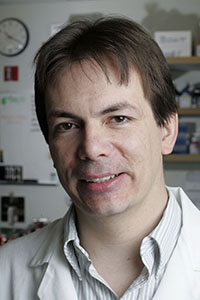
Session 4 Medical Genomics (5/21 16:30-)
Evan Eichler (Univ of Washington, USA)
Evan Eichler, Ph.D., is a Professor and Howard Hughes Medical Institute Investigator in the Department of Genome Sciences, University of Washington School of Medicine. He graduated with a B.Sc. Honours degree in Biology from the University of Saskatchewan, Canada, in 1990. He received his Ph.D. in 1995 from the Department of Molecular and Human Genetics at Baylor College of Medicine, Houston. After a Hollaender postdoctoral fellowship at Lawrence Livermore National Laboratory, he joined the faculty of Case Western Reserve University in 1997 and later the University of Washington in 2004. He was a March of Dimes Basil O’Connor Scholar (1998-2001), appointed as an HHMI Investigator (2005), awarded an AAAS Fellowship (2006) and the American Society of Human Genetics Curt Stern Award (2008), and elected to the National Academy of Sciences (2012). He is an editor of Genome Research and has served on various scientific advisory boards for both NIH and NSF. His research group provided the first genome-wide view of segmental duplications within human and other primate genomes and he is a leader in an effort to identify and sequence normal and disease-causing structural variation in the human genome. The long-term goal of his research is to understand the evolution and mechanisms of recent gene duplication and its relationship to copy number variation and human disease.
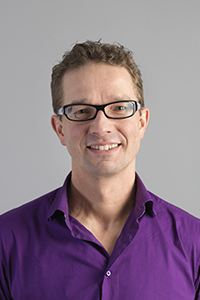
Session 4 Medical Genomics (5/21 16:30-)
Joris Veltman (Radboud University, Ned)
Professor in Translational Genomics and head of Genome Research division at the Department of Human Genetics, Radboud University Medical Centre in Nijmegen and the Department of Clinical Genetics, Maastricht University Medical Centre in Maastricht, The Netherlands. My research focuses on the identification and interpretation of genomic variation, with a particular interest in the role of rare de novo mutations and copy number variations in severe neurodevelopmental and psychiatric diseases. With my research group I study the genomes of patients using next generation sequencing technology and combine laboratory experiments with novel bioinformatic approaches. I am also actively involved in the implementation of these novel genomics approaches in routine clinical diagnosis.

Session 4 Medical Genomics (5/21 16:30-)
Wataru Satake (Kobe University, Japan)
Wataru Satake is an Assistant Professor at Kobe University. His clinical specialty is neurology. He was engaged in neurology specialty clinic at Osaka University Hospital, and has been engaged at Kobe University Hospital now. His research is focused on genomics of Parkinson's disease, which is one of the common intractable diseases in neurology. He and his colleagues performed a SNP-GWAS (Genome-Wide Asscoation Study) of Japanese Parkinson’s disease, and reported novel risk loci for the disease (Satake et al, Nature Genet 2009).
He presently conducts an expanded SNP-GWAS and exome association study of Parkinson’s disease in order to clarify further genetic background of the disease.
He received his M.D. and Ph.D. from Osaka University in 2000 and 2007. In genomic research, he received “Young Scientist Award” (Japanese Society of Human Genetics), “Presentation Award” (Japanese Society of Neurology), and “Academic Award” (Kobe University). In clinical side, he has been a board-certified specialist in clinical neurology (Japanese Society of Neurology), medical genetics (Japanese Society of Human Genetics), and internal medicine (Japanese Society of Internal Medicine).
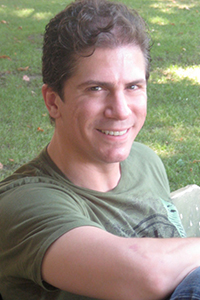
Session 5 Big Data (5/22 9:30-)
Serafim Batzoglou (Stanford Univ.,USA)
Serafim Batzoglou received his Batchelors of Science in Computer Science and Mathematics, and his PhD in
Computer Science at the Massachusetts Institute of Technology. He is a Professor of Computer Science at
Stanford University, where he has been teaching since 2001. His research focus has ranged from genome
assembly and comparative genomics, to functional genomics, population genetics and cancer genomics.
He is an Alfred P Sloan Fellow, a recipient of the MIT's Technology Review magazine Top Young Technology
Innovators award, and is a co-founder of DNAnexus.
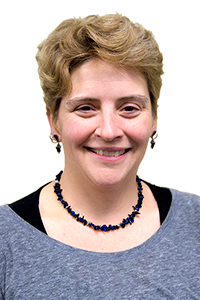
Session 5 Big Data (5/22 9:30-)
Deanna Church (Personalis, USA)
Dr. Deanna Church currently leads the genomics and bioinformatics R&D
programs at Personalis in Menlo Park, CA. She joined Personalis from the
NCBI where she was one of the leads developing the GRCh38 reference and
other bioinformatics databases. Deanna Church, Ph.D., was a staff
scientist at NCBI, where she oversaw several projects concerning
managing and displaying genomic data, including dbVar, a database of
genomic structural variation, the NCBI Map Viewer, the Clone database,
and the NCBI Remap service. Dr. Church is also a member of the Genome
Reference Consortium (GRC) an international consortium charged with
improving the human, mouse, and zebrafish assemblies, and was an author
on the two seminal manuscripts describing the human and mouse genome
sequences. She has experience in molecular biology, genetics, genomics,
bioinformatics, and is currently focusing on making genomic data more
useful through large-scale annotation and comparative genomics. She
graduated from the University of Virginia with a BA in Liberal Arts in
1990, and received her doctoral degree in the Biological Sciences at the
University of California, Irvine in 1997. She performed postdoctoral
work with Dr. Janet Rossant at the Samuel Lunenfeld Research Institute
at Mount Sinai Hospital in Toronto.
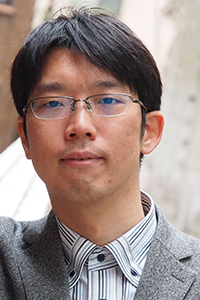
Session 5 Big Data (5/22 9:30-)
Tetsuo Shibuya (The University of Tokyo, Japan)
Tetsuo Shibuya received a Bachelor of Science, a Master of Science,
and a Ph.D. of Science from the University of Tokyo, in 1995, 1997, and
2002 respectively. He was a researcher at IBM Tokyo Research Laboratory
from 1997 to 2004. He was an assistant professor and is an associate
professor at the Universtiy of Tokyo from 2004 and from 2009, respectively.
His research interest is on the theory, development, and applications of
algorithms in bioinformatics. He received the best paper award at the
13th Annual International Conference on Research in Computational
Biology (RECOMB) held at Tuscon in 2009, Microsoft Research Japan New
Faculty Award in 2011, and Funai Prize for Science and Technology also in 2011.

Session 6 Epigenomics (5/22 15:00-)
Josh Stuart (UCSantaCruz)
Professor, Biomolecular Engineering, UC, Santa Cruz
Associate Director, Center for Biomol. Science and Engineering
Endowed Chair, Baskin School of Engineering
Josh has a background in machine-learning to interpret high-throughput molecular biology datasets. He has an expertise in developing computational models to integrate multiple sources of genomics and functional genomics information. The Stuart lab focuses on discovering gene networks that program cellular responses, developing pathway-based models to predict alterations and clinical outcomes in tumor samples. He co-directs a Genome Data Analysis Center for the TCGA project, co-leads the TCGA and ICGC Pan-Cancer analysis projects, and directs the informatics for a SU2C/PCF “Dream Team” to identify therapies for metastatic prostate cancer.
Josh received his Ph.D. from Stanford University in 2004. He received the 2006 Kalpana Chawla Outstanding Recent Alumni Award from the University of Colorado at Boulder, is an Alfred P. Sloan Fellow, and received an NSF CAREER award in 2009. Josh selected as the Jack Baskin endowed chair at UCSC in 2013.
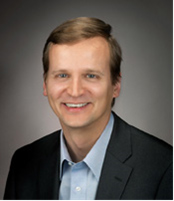
Session 6 Epigenomics (5/22 15:00-)
Jonas Korlach (PacBio, USA)
Dr. Korlach was appointed Chief Scientific Officer at Pacific Biosciences in July 2012. He co-invented the SMRT technology with Steve Turner, Pacific Biosciences Founder and now Chief Technology Officer, when the two were graduate students at Cornell University. Dr. Korlach joined Pacific Biosciences as the company's eighth employee in 2004. He is the recipient of multiple grants, an inventor on 42 issued U.S. patents, and an author of numerous scientific studies on the principles and applications of SMRT technology, including publications in Nature, Science, and PNAS. He received both his Ph.D. and M.S. degrees in Biochemistry, Molecular and Cell Biology from Cornell, and received M.S. and B.A. degrees in Biological Sciences from Humboldt University in Berlin, Germany.
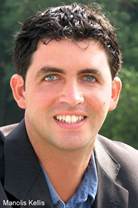
Session 6 Epigenomics (5/22 15:00-)
Manolis Kellis (MIT, USA)
Manolis Kellis is a Professor of Computer Science at MIT, where he directs the MIT Computational Biology
Group (compbio.mit.edu). He has helped direct several large-scale genomics projects, including the NIH
Roadmap Epigenomics project, the comparative analysis of 29 mammals, the Encyclopedia of DNA Elements
(ENCODE) project, and the Genotype Tissue-Expression (GTEx) project. He received the US Presidential Early
Career Award in Science and Engineering (PECASE), the NSF CAREER award, the Alfred P. Sloan Fellowship.
He obtained his Ph.D. from MIT, where he received the Sprowls award for the best doctorate thesis in
computer science. He lived in Greece and France before moving to the US.

Session 6 Epigenomics (5/22 15:00-)
Yutaka Suzuki (The University of Tokyo, Japan)
1994 Department of Chemistry, University of Tokyo B.Sc.
1996 Department of Interdisciplinary Sciences, University of Tokyo M.Sc.
1999 Department of Interdisciplinary Sciences, University of Tokyo Ph.D.
1999-2000 Research Associate, Genome Science Center, RIKEN, Japan
2000-2003 Research Associate, Human Genome Center, the Institute of Medical Science, the University of Tokyo, Japan
2003- present Associate Professor, Department of Medical Genome Science, the University of Tokyo, Japan
2013 Professor, Department of Computatinal Biology, the University of Tokyo, Japan




















